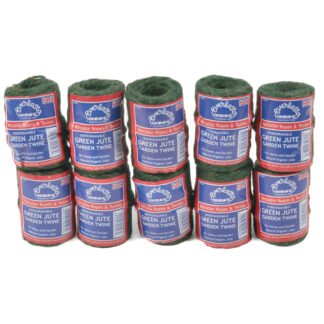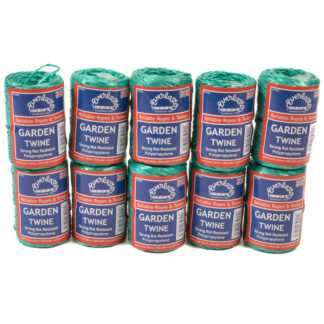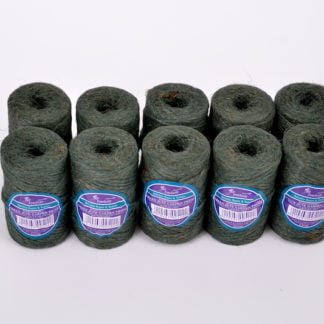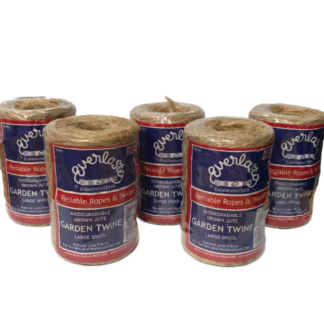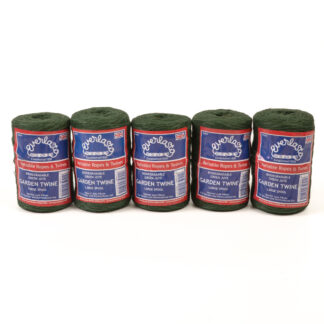Garden Twines
Showing 25–32 of 32 results
-

Case Of 10 X 10 Pack Everlasto Green Jute Garden Twine 40G Spools
£40.04 (Inc. UK VAT) Add to basket -

Case Of 10 X 10 Everlasto Polypropylene Garden Twine 40G Spools
Sale! £36.53 (Inc. UK VAT) Add to basket -

Everlasto Natural Jute Garden Twine 225G Balls 4 Pack
£14.72 (Inc. UK VAT) Add to basket -

Case Of 10 X 10 Packs Everlasto Brown Jute Garden Twine 90G Spools
Sale! £48.79 (Inc. UK VAT) Add to basket -

Case Of 10 X 10 Pack Everlasto Green Jute Garden Twine 90G Spools
£81.68 (Inc. UK VAT) Add to basket -

Case Of 20 X 5 Packs Brown Jute Garden Twine 180G Spool
£136.15 (Inc. UK VAT) Add to basket -

Case Of 20 X 5 Pack Green Jute Garden Twine 180G Spools
£147.37 (Inc. UK VAT) Add to basket -

Case Of 20 X 5 Everlasto Polypropylene Garden Twine 180G Spools
£190.18 (Inc. UK VAT) Add to basket
Showing 25–32 of 32 results
Frequently asked questions about garden twine
What’s better – jute garden twine or polypropylene garden twine?
If you would prefer natural garden twine as an eco-friendly garden tool, jute garden twine is the right choice for you. Jute is a thinner twine with shorter, softer fibres, which means it’s not so abrasive against growing plants. Jute is a strong natural twine, even when wet, and is quite hard-wearing. However, jute isn’t as long-lasting and durable as polypropylene garden twine, which is a better choice if you want something for the longer term that’s more resistant to wear and tear, salts, acids and adverse weather conditions.
What twine is best for gardening?
Many gardeners prefer natural twines, such as jute garden twine and sisal twine, for garden work because these materials are eco-friendly, biodegradable and non-abrasive. Plus, their rustic appearance can be more aesthetically pleasing and be more in keeping with a natural garden environment. However, synthetic materials like polypropylene or nylon can sometimes be preferable for extra strength, long-lasting durability and control. Alternatively, you can find blended twines like polyhemp twine that give you the best of both worlds – the appearance of natural twine but the strength of synthetic garden twine.
What can I use as a heavy-duty garden twine?
Flax or hemp twine and thick sisal twine are both excellent options for an extra strong natural garden twine, although they aren’t as soft, pliable and non-abrasive as jute garden twine and are only available in natural colour, whereas jute comes in green to blend in with plants. If you’re happy using synthetic twines, any of these materials will be strong and long-lasting enough for your needs.

